Can Xi Jinping fix China’s baby crisis?
The Communist Party is desperately trying to revive a birthrate it has pummelled for 70 years, but its people are resisting.
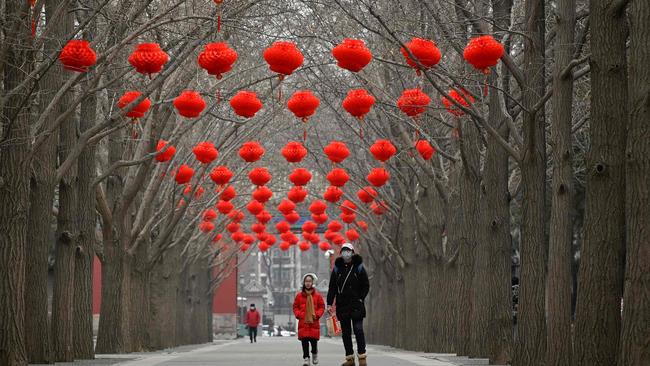
This week, many people in China couldn’t help but laugh at the Chinese Communist Party.
Twenty years ago, Shandong, the second most populous province in China, set a target to “achieve zero population growth in 2022”.
On Tuesday, a photo of the two decades-old front page announcing the policy went viral in China. Not only had Shandong achieved zero population growth on time, as the comrades had planned. The entire country was now shrinking.
“Outperformed already!” joked one user of Weibo, China’s Twitter-like social media platform.
Hours earlier, China’s National Bureau of Statistics had unveiled the epochal news: last year the country’s population had fallen for the first time in 60 years to just over 1.41 billion.
The last time China’s population went down was in 1961 when Mao Zedong oversaw the world’s most catastrophic man-made famine, killing an estimated 30 million people.
2022 was the sixth consecutive year that China’s birthrate fell. Demographic experts say the decline is now inexorable. The share prices of China’s infant formula brands fell as the news broke.
“This is a seismic shift,” says Wang Feng, a professor at the University of California, Irvine, and one of the world’s top experts on Chinese demographic change.
India is now the most populous country in the world, according to the United Nations. By the end of the century, China’s population is expected to halve to around 700 million, according to the UN.
Party state media tried to downplay the significance of the decline, the embarrassment of which was compounded by new figures showing China’s economy grew by only 3 per cent in 2022, one of the slowest rates since the Mao era.
Beijing’s major trading partners, including Australia, need to adjust to the new reality: China is not going to be the source of growth it has been over the past few decades.
Communist Party officials are now desperately trying to revive a birthrate they have pummelled for 70 years.
“The dramatic U-turn that the government has taken, from strictly limiting births less than a decade ago to desperately encouraging Chinese women to give birth, has been one of the most stark shifts in government policy of the Xi Jinping era,” says Barclay Bram in a new paper published by the Asia Society.
Not only are their efforts not working. Worryingly, for the party, they have become a target of widespread ridicule.
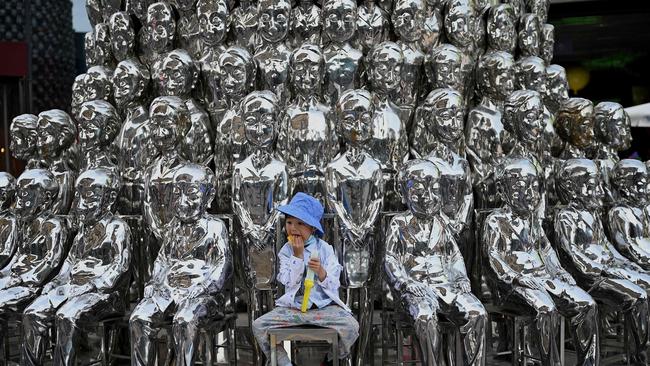
The Communist Party has always been obsessed with population control. Before Beijing’s notorious “one child policy” there was the much more successful “later, longer, fewer” campaign, which began in the early 1970s.
Red posters urged Chinese couples to marry later, have longer gaps between children and use birth control to have fewer children. It was transformative. The fertility rate fell from 5.7 children per couple in 1969 to 2.7 in 1978.
The one-child policy, which began in 1980 and only ended in 2016, was much less successful even as it traumatised the nation with forced abortions. During its first decade, China’s birthrate fell only marginally to 2.5 children. A much bigger decline came as China got wealthier in the 1990s, following the demographic path trodden by East Asia’s economic trailblazers, Japan, South Korea and Taiwan.
The party’s latest campaign, the “three-child policy”, has been the subject of open scorn since it was launched in 2021 right after China’s last census revealed its birthrate was plunging.
China’s official Xinhua News asked readers if they were prepared to have a third child, as part of an effort to publicise it. More than 90 per cent of online respondents promptly said they “won’t even consider it”. The poll was swiftly deleted.
Yong Cai, an associate professor in the Department of Sociology at the University of North Carolina at Chapel Hill, said the “three-child policy” was ridiculed because Chinese people felt it was a “demand”.
“People did not view this as a freedom being bestowed on them,” he told the China Project.
Beijing’s ongoing attempts at command-and-control population policy seem absurd to many young Chinese.
For years, rising numbers have complained that parenthood is financially impossible. Soaring healthcare and education costs have made raising a child a huge expense. That is compounded by widely held societal expectations that babies must be born to married parents and, even more prohibitively, that marriages require home ownership.
Those hurdles are far too high for Sun, a 26-year-old maths tutor in Beijing. Her boyfriend is a piano teacher, while she works as a private tutor, a profession outlawed in 2021, although she still teaches her own students at their homes. Such secretive arrangements are common, as Chinese parents continue to try to give their children whatever advantage they can to survive China’s ferociously competitive education system.
“Marriage, a home, a child: all the good words sound like burdens to us,” she tells Inquirer.
The couple’s “unstable income” makes parenthood inconceivable, she says.
They are part of a huge trend that is driving China’s declining fertility: the tumbling marriage rate. It fell by almost 40 per cent from 2013 to 2020. This has been hugely consequential because of a range of government policies that make it extremely difficult to raise a child in China outside of marriage.
But the biggest driver of the falling birthrate is Beijing’s failure to address the inequalities women face at home and at work. China’s economy has become increasingly difficult for women over the past decades. In 2006, China ranked 63 out of 115 countries on the World Economic Forum’s Global Gender Gap Index. By 2022, China had tumbled to 102 out of 146 countries.
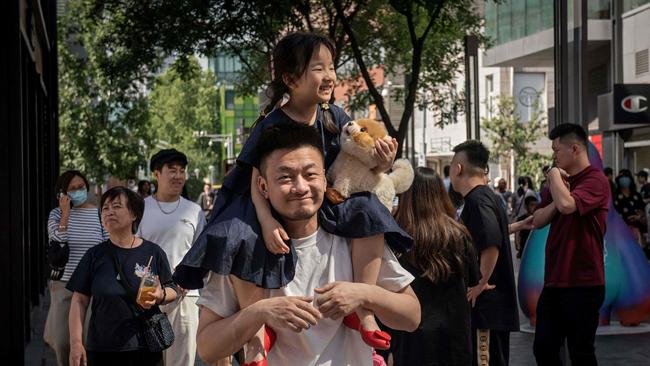
Even as the birthrate falls, Chinese women are leaving the workforce. The country’s participation rate has dropped to 61.6 per cent, according to the World Bank, down from 70.5 per cent in 2000.
Ding Xiuli says after she had her second child, now three years old, the real estate company she worked for in central China became “unhappy” with her.
“They hinted to me that I spent too much time taking care of my daughter,” she tells Inquirer.
“I went home from the office on time, unlike others who stayed after office hours.”
The company asked if she would volunteer to lower her wage. She refused. The criticism increased until she found it “impossible” to stay. After that experience, she says a third child is “out of the question”.
Still, Ding considers herself luckier than most. Her husband works for a state-owned company, whose connections allowed them to buy a home well below the market price. Even at that price, the couple needed financial support from both her and her husband’s parents, the common path to home ownership in China.
Sadly, her story is a common one. A survey in 2017 of more than 40,000 working women by Zhaopin, one of the country’s biggest job-recruiting websites, found that 40 per cent of working women in China without children did not want to have children at all.
China’s highly educated women worry childbirth will ensnare them in the country’s conservative gender roles, which are often career ending. For women who already had a child, 63 per cent said they did not want a second. The biggest concern for more than half of the women surveyed was “difficulty in returning to work after child-bearing”.
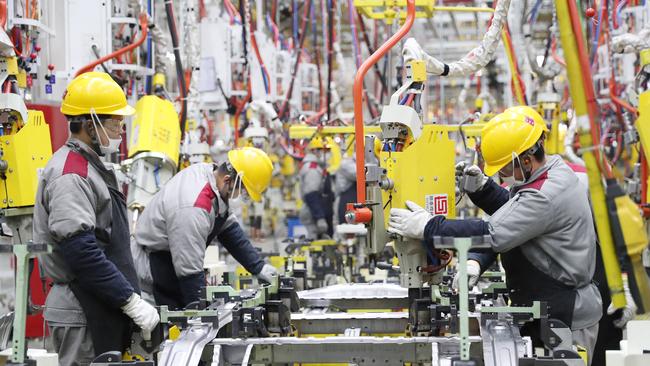
For now, China’s government shows no signs of addressing their complaints. At 1.3 children per couple, China’s fertility rate is currently still higher than its East Asian neighbours. In wealthier, more urban Hong Kong, Macau, Taiwan and South Korea, fertility rates range between 1.1 to 0.8.
Zheng Mu, an assistant professor of sociology at the National University of Singapore and expert in family and population in China, thinks China’s birthrate will keep falling for at least the next five years towards similar levels. “At this time I don’t see any policy that has been really working,” she tells Inquirer.
The government has tried giving home-purchase subsidies and a range of other financial incentives. But Mu says nothing has been done to address the root of China’s most profound birthrate problem, which “boils down to gender norms”.
Xi Jinping is not the obvious choice of a leader who would establish a Scandinavian-style parental leave scheme in China. Before he up-ended elite Communist Party politics to become leader for life, Xi’s pitch included that he was “man enough” to stop China’s ruling party following the demise of the Soviet Union.
“Xi Jinping himself is even more of a traditionalist with regard to women’s roles than his predecessors,” says Leta Hong Fincher, author of Betraying Big Brother: The Feminist Awakening in China.
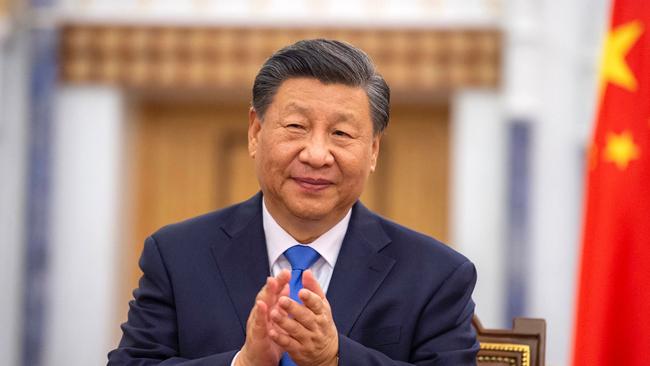
As if to underline the point, Xi last October selected an entirely male 24-member politburo. It was the first time there was not a single woman on that crucial decision-making group in 25 years. How this all-male group of men – the youngest of whom is 59 – responds to the huge demographic shifts under way in the country will be one of the biggest determinants of the 21st century.
Fincher says their overwhelming consideration will be how to keep the party in power.
“That means more coercion. That doesn’t mean Xi’s suddenly going to become an enlightened feminist and realise that, hey, maybe if we gave women more freedom they’d be more willing to get married and have children,” she tells Inquirer.
So China’s population will keep falling. The ever-shrinking pool of workers will chip away at China’s position as the “factory of the world”. The retirement age – currently only 60 for men and 55 for women – will have to be raised.
Sources of the party’s performance legitimacy will also change. Increasingly, China’s rulers will be judged on the country’s pension plan, its geriatric healthcare and the quality of its aged-care homes (a growth asset that Australian real-estate giant Lendlease has already started building in the country).
Howard French, author of Everything Under the Heavens, argues that Beijing’s awareness of its peaking relative power explains its assertiveness in recent years.
“China’s leaders surely know that their country’s moment of maximum opportunity in the world is now,” French writes in Foreign Policy.
“Resources for global diplomacy, influence-building, and military investment will soon come under tremendous pressure from the need to fund more prosaic but inescapably necessary things,” he says, such as health insurance.
It is one of the key reasons Kevin Rudd calls this a “dangerous decade”. But others argue an ageing, shrinking China will become a gentler China.
Mark L. Haas, a Duquesne University political scientist, has forecast a coming “geriatric peace”, as China’s rising aged care bill makes challenging America’s military pre-eminence too taxing on its stretched budget.
China’s dwindling population will have their own ideas about what future they prefer.






To join the conversation, please log in. Don't have an account? Register
Join the conversation, you are commenting as Logout